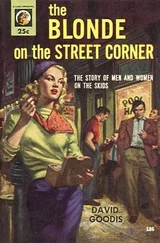David Lindsey - The Face of the Assassin
Здесь есть возможность читать онлайн «David Lindsey - The Face of the Assassin» весь текст электронной книги совершенно бесплатно (целиком полную версию без сокращений). В некоторых случаях можно слушать аудио, скачать через торрент в формате fb2 и присутствует краткое содержание. Жанр: Триллер, на английском языке. Описание произведения, (предисловие) а так же отзывы посетителей доступны на портале библиотеки ЛибКат.
- Название:The Face of the Assassin
- Автор:
- Жанр:
- Год:неизвестен
- ISBN:нет данных
- Рейтинг книги:4 / 5. Голосов: 1
-
Избранное:Добавить в избранное
- Отзывы:
-
Ваша оценка:
- 80
- 1
- 2
- 3
- 4
- 5
The Face of the Assassin: краткое содержание, описание и аннотация
Предлагаем к чтению аннотацию, описание, краткое содержание или предисловие (зависит от того, что написал сам автор книги «The Face of the Assassin»). Если вы не нашли необходимую информацию о книге — напишите в комментариях, мы постараемся отыскать её.
The Face of the Assassin — читать онлайн бесплатно полную книгу (весь текст) целиком
Ниже представлен текст книги, разбитый по страницам. Система сохранения места последней прочитанной страницы, позволяет с удобством читать онлайн бесплатно книгу «The Face of the Assassin», без необходимости каждый раз заново искать на чём Вы остановились. Поставьте закладку, и сможете в любой момент перейти на страницу, на которой закончили чтение.
Интервал:
Закладка:
“Susana, I’m sorry, you’ll have to forgive me.” She embraced her, too, and kissed her lightly on the cheek.
She turned to Bern again, suddenly caught up once more by the presence of her son. For a few moments, she was lost in his face, and Bern knew and understood the emotions churning in her, sweeping away the logic of the moment. Then she caught herself.
“Oh, please,” she said, reaching out and touching his arm, jogged from her fascination. “Come on, let’s get in out of the heat.”
She led them into the coolness of the house, an old and spacious home with a living room, a staircase, a dining room, and a large kitchen, where she led them unpretentiously to a table that overlooked a back lawn, a brick-walled garden.
“Would you like some iced tea?”
“That would be great,” Bern said, and while Susana helped Jude Lerner’s mother, Bern stood at the windows and looked outside. There was a large birdbath, a sundial that would never tell the time in the deeply shaded yard, a patio with furniture. Jude had grown up here, in this yard, in this kitchen, with this gentle woman as his mother. The kitchen smelled of family and of memories.
For a while, they spoke in generalities. Bern told her a bit about his life, where he lived, what he did. She rambled a little, sometimes flustered, it seemed, by her situation, telling of Jude growing up, saying that she had not seen as much of him in his last years as she would have liked.
Bern was impatient, but he struggled not to show it. Still, he rather quickly steered the conversation around to how he had come to be in this situation, being careful to follow the parameters that Susana and Gordon had made clear to him. He told her what he knew of his past, the little that his aunt had revealed to him just before he went to Mexico City.
As he talked, Regina Lerner devoured him with her eyes; he could almost feel her gaze. It would’ve been disconcerting if he hadn’t experienced something like this himself while living Jude’s life.
After a while, Bern couldn’t put off the question any longer.
“Mrs. Lerner,” he said, “did you… do you have any idea who our biological parents were?”
She smiled, the same melancholy, understanding smile that his aunt had smiled when he visited her in Houston and asked the same question.
“Well, you should call me Regina,” she said. “All right?” And then she hesitated a moment before she added, “Not for many years, I didn’t know.” She looked away and then down at her hands on the table. “Jude was just out of university,” she said, lifting her eyes to Bern. “He knew he was adopted, but he never particularly showed any interest in his biological parents. I don’t know why. So many people do. But he didn’t. And he knew that we would’ve happily helped him find them if he had wanted. We’d always made that clear to him. But he never asked to pursue it.”
She studied her hands again, smiled, and shook her head.
“And then one day-this is still so strange to me, even now-I answered the doorbell. A woman was standing there… and very abruptly she said that she was Jude’s mother and that she would like to talk to me.
“It was a cold, drippy day, early December, and I had a fire going in the living room in there. She was chilled, and I made coffee. We sat in there and talked, a couple of hours, I guess it was. She never told me her name. I begged her… but she was resolute.”
Regina sipped her iced tea, and it seemed to Bern that she wanted to get the words right. He glanced at Susana, who had her eyes fixed on the woman.
“She told me,” Regina said, “that she had terminal cancer and that while she was still well enough to talk about it, she wanted me to understand Jude’s beginnings. If I wanted to tell Jude about her and what she had to say, fine. If not, that was up to me. She just didn’t want the truth of it all to die with her.”
Regina sighed and began her story.
“She was from a small town in the South, wouldn’t say exactly where. She said that when she was seventeen, she discovered that she was pregnant, and that the father was the son of a prominent judge in the county. The boy’s family wanted her to have an abortion to prevent a scandal. But her parents-her father was a grocer-disagreed, saying they wanted the child and that they weren’t ashamed of anything… except that the boy wasn’t standing by their daughter.
“The judge then began to bring certain pressures to bear against the girl’s family: Bank loans were suddenly called in; insurance policies were canceled for esoteric reasons…” Regina shook her head. “A small town like that, uncommon deference to powerful men is not out of the ordinary. You can imagine. Anyway, the upshot of it was that the girl ran away, to spare her parents even more of the judge’s wrath. Her parents were heartbroken, but she wouldn’t reveal where she’d gone. The judge hired private detectives to try to find her.”
Regina sighed again. “It was a sad and sorry story. During this time alone, running, the girl discovered that she was expecting twins.
“It seemed like too much for her to bear,” Regina said, “working at menial jobs, unwed, pregnant, visiting charity Hospitals. When the boys were born-she wouldn’t tell me where-she got on a bus and traveled to St. Jude’s Charity Hospital in Memphis. She abandoned one boy there. Jude. That was the name they gave him there. We kept it. The other baby she took elsewhere. She didn’t say where. I guess it was Atlanta, the old Lanier Memorial, as you said.”
“Why in the world did she go to so much trouble to separate the babies?” Bern asked.
Regina nodded. “Well, the story of what was happening slipped out, as things like that have a way of doing, and the judge’s family was shamed into changing their own story, putting a different spin on it. Now they claimed that the girl had kidnapped the children and that their son wanted desperately to have custody of what was rightfully his. The girl was obviously irresponsible. The judge hired private investigators to find her. When… your mother learned of this, she vowed that the judge would never have her children.”
Regina looked at Bern. When she spoke, her voice was compassionate, softened by years of seeing the unfairness of life, the dangers of rushing to judgment. “You have to understand. She was young and not terribly sophisticated. She thought the judge could pull strings everywhere, not just in their small town. As she saw it, the only thing to do was to separate you. Twins would be so much easier for the judge’s investigators to track down. So, different hospitals, different cities.”
Bern was amazed, but he could imagine the rest of it.
“And St. Jude’s’ records were intact,” he said. “That’s how she was able to go back there and find you.”
Regina nodded.
“And the old Lanier Memorial’s records were fouled up somehow.”
“That seems to be the way it happened.” She nodded. “Yes.”
“And then years later,” Susana said, “when the CIA came to you for their standard interview when Jude applied, you told them about Jude having a twin.”
“Yes, I did.”
“Did you tell Jude about it, after our mother came here?” Bern asked.
“Yes, I did. I told him just what I’ve told you.”
“Then he knew he had a twin.”
She nodded.
“And how did he feel about that?”
“He was pretty sobered by it. As I said, the woman wouldn’t leave her name, gave no information about herself. She said it wouldn’t do any good. She said that I was Jude’s mother and that’s the way it ought to stay.”
“And then she… just left?”
“Yes, but first, sitting there in the living room before the fire, she opened her purse and took out a small envelope. Then she took out a little pair of scissors. She cut a lock of her hair and put it in the envelope, then sealed and put it next to her cup on the coffee table. ‘For DNA,’ she said. ‘And maybe a memory.’
Читать дальшеИнтервал:
Закладка:
Похожие книги на «The Face of the Assassin»
Представляем Вашему вниманию похожие книги на «The Face of the Assassin» списком для выбора. Мы отобрали схожую по названию и смыслу литературу в надежде предоставить читателям больше вариантов отыскать новые, интересные, ещё непрочитанные произведения.
Обсуждение, отзывы о книге «The Face of the Assassin» и просто собственные мнения читателей. Оставьте ваши комментарии, напишите, что Вы думаете о произведении, его смысле или главных героях. Укажите что конкретно понравилось, а что нет, и почему Вы так считаете.












